Rhetoric and the Familiar in
Francis Bacon and John Donne
Rhetoric and the Familiar in
Francis Bacon and John Donne
Daniel Derrin

FAIRLEIGH DICKINSON UNIVERSITY PRESS
Madison Teaneck
Published by Fairleigh Dickinson University Press
Co-published with The Rowman & Littlefield Publishing Group, Inc.
4501 Forbes Boulevard, Suite 200, Lanham, Maryland 20706
www.rowman.com
10 Thornbury Road, Plymouth PL6 7PP, United Kingdom
Copyright 2013 by Daniel Derrin
All rights reserved. No part of this book may be reproduced in any form or by any electronic or mechanical means, including information storage and retrieval systems, without written permission from the publisher, except by a reviewer who may quote passages in a review.
British Library Cataloguing in Publication Information Available
Library of Congress Cataloging-in-Publication Data
Derrin, Daniel, 1980
Rhetoric and the familiar in Francis Bacon and John Donne / Daniel Derrin.
pages cm
Includes bibliographical references and index.
ISBN 978-1-61147-603-3 (cloth) ISBN 978-1-61147-604-0 (electronic)
1. Bacon, Francis, 15611626Literary style. 2. Donne, John, 15721631Literary style. 3. Bacon, Francis, 15611626KnowledgePsychology. 4. Donne, John, 15721631KnowledgePsychology. 5. English languageEarly modern, 15001700Rhetoric. I. Title.
PR2208.D47 2013
820.9'003dc23
2012047496
 The paper used in this publication meets the minimum requirements of American National Standard for Information Sciences Permanence of Paper for Printed Library Materials, ANSI/NISO Z39.48-1992.
The paper used in this publication meets the minimum requirements of American National Standard for Information Sciences Permanence of Paper for Printed Library Materials, ANSI/NISO Z39.48-1992.
Printed in the United States of America
For Monika
Acknowledgements
This work could not have been managed without the wisdom, discretion, and friendship of Professor Tony Cousins, who helped me to see the seeds that grew into this book and with whom I gave it the care it needed along the way. It is an understatement, of course, but I could not have done this without you, Tony. Since you already know that, what I most want to say is thanks for waiting so wisely and patiently on so many occasions while I took my time to realize what was going on and catch up. What a tremendous example you are for us all.
To Nigel Chapman, another true intellectual companionI could almost say collaboratorI owe the sincerest thanks for showing me how to be a truehearted platonic conversationalist and for encouraging my efforts. The battalion may be lost, Nigel, but its spirit lives in those who follow your fine example.
I owe debts to many other scholars. I thank Professor Antonina Harbus for her guidance at crucial moments throughout the period of writing this book. Professor Bob White, Professor Peter Holbrook, and Professor Andrew Hiscock all read the entire manuscript in an earlier form. It has benefited greatly from their insight and challenges. I am also very grateful to the copy editor at Fairleigh Dickinson University Press for the incisive critical commentary on the manuscript, which has improved it greatly.
Two other friends, Dr. Peter Wilkin and James Lancaster, have read sections of the book and offered valuable critical advice. Sections of the work have been published in different forms in the journals Parergon and English Studies. In addition to the reviewers of those journals, I would therefore also like to thank Dr. Anne Scott and Dr. Danijela Kambaskovic-Sawers for their encouragement and comments on certain of those past versions.
I also want to thank my friends Dr. Alice Curry, Dr. James Mackenzie, Dr. Michael Austen, and Dr. Rachel Yuen-Collingridge for the many conversations we have had during which I was able to work through problems I encountered in researching this book, and the larger intellectual problems it threw up. I am much beholden to you all.
My parents have constantly supported me during the years of writing this book. I thank you both for helping me keep my dignity and sanity in tact throughout.
Last of all I offer my endless gratitude to my wonderful friend Monika, who has put up with a lot while it was being written, and to whom I respectfully dedicate the work. I think your father would have been proud.
Abbreviations
Ad Her. | AdHerennium. Edited and translated by Harry Caplan. Loeb Classical Library. 1954. Reprint, Cambridge, MA: Harvard University Press, 2004. |
Advancement | Francis Bacon. TheAdvancementofLearning. Edited by Michael Kiernan. Oxford Francis Bacon, vol. 4. Oxford: Clarendon Press, 2000. |
Arguments | Peter Ramus. ArgumentsinRhetoricagainstQuintilian:TranslationandTextofPeterRamussRhetoricaedistinctionesinQuintilianum(1549). Translated by Carole Newlands. Edited by James J. Murphy. 1986. Reprint, Carbondale and Edwardsville: Southern Illinois University Press, 2010. |
Art | Thomas Wilson. TheArtofRhetoric(1560). Edited by Peter E. Medine. University Park: Pennsylvania State University Press, 1994. |
Barnes | Aristotle. TheCompleteWorksofAristotle:TheRevisedOxfordTranslation. Edited by Jonathan Barnes. Princeton, NJ: Princeton University Press, 1984. |
DeCop. | Desiderius Erasmus. Deduplicicopiaverborumacrerumcommentariiduo. Translated by Betty Knott. CollectedWorksofErasmus, vol. 24. Toronto: University of Toronto Press, 1991. |
DeOrat. | Cicero. DeOratore. Edited by H. Rackham. Translated by E. W. Sutton. Loeb Classical Library. 1948. Reprint, Cambridge, MA: Harvard University Press, 2004. |
De Part. Orat. | Cicero. Departitioneoratoria. Edited and translated by H. Rackham. Loeb Classical Library. 1948. Reprint, Cambridge, MA: Harvard University Press, 2004. |
IO | Quintilian. Institutiooratoria. Edited and translated by Donald A. Russell. Loeb Classical Library. Cambridge, MA: Harvard University Press, 2001. |
Letters | John Donne. LetterstoSeverallPersonsofHonour(1651). Facsimile reproduction. Introduction by M. Thomas Hester. Delmar, NY: Scholars Facsimiles & Reprints, 1977. |
Meno | Plato. Plato:CompleteWorks. Edited by John M. Cooper. Indianapolis, IN: Hackett, 1997. |
NO | Francis Bacon. TheInstauratioMagna,PartII:NovumOrganumandAssociatedTexts. Edited by Graham Rees with Maria Wakely. Oxford Francis Bacon, vol. 11. Oxford: Clarendon Press, 2004. |
Rhetoric | Aristotle. OnRhetoric:ATheoryofCivicDiscourse. Edited and translated by George A. Kennedy. 2nd ed. Oxford: Oxford University Press, 2007. |
Next page

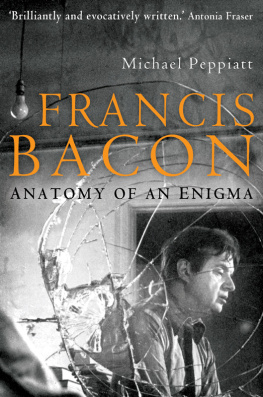



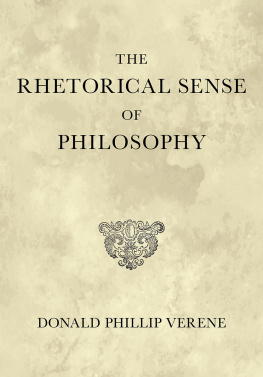
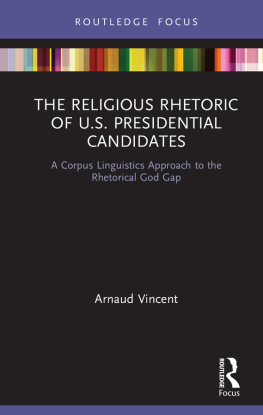
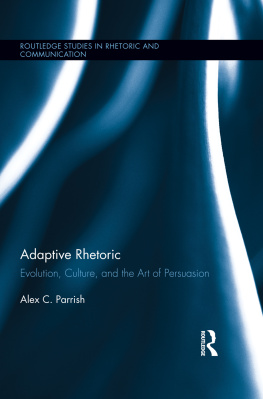
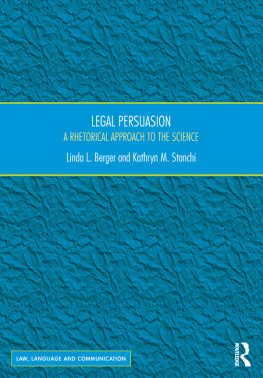
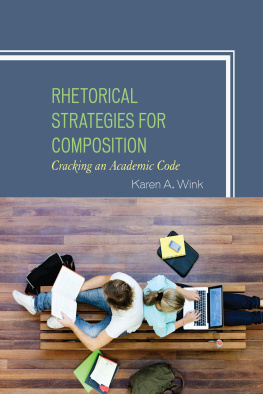

 The paper used in this publication meets the minimum requirements of American National Standard for Information Sciences Permanence of Paper for Printed Library Materials, ANSI/NISO Z39.48-1992.
The paper used in this publication meets the minimum requirements of American National Standard for Information Sciences Permanence of Paper for Printed Library Materials, ANSI/NISO Z39.48-1992.